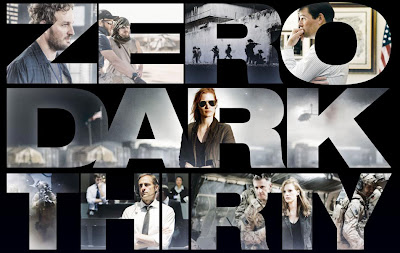 |
| Image Source: my.spill.com |
It seems this year’s blockbusting directors are flush with history. Quentin Tarantino’s Django Unchained (2012) was released as a tutting reminder of America’s taint of slavery, while its violence-splashed stylistics became a bone of contention. The movie succeeded a massacre in Newtown, Connecticut, where 26 were killed by a lone 20-year-old gunman. America’s growing sensitivity to portrayals of violence rammed straight into Tarantino’s --- and Hollywood’s --- entertainment value of putting into celluloid what the society fears most.
It could be the other way around, where reality is spun into a remake. Kathryn Bigelow, for whom the success of The Hurt Locker (2008) might have propelled her into militant filmmaking, archived her depth as a director in fact-consuming Zero Dark Thirty. Locker was a brilliant slice of war during W. Bush’s march into Iraq, the door jamb on the war on terror.
 |
| Image Source: boingboing.net |
Zero is the spluttering follow-up: bin Laden had already been assassinated by American elite forces, and the movie’s attempt to play it all out was a work of wavering loyalty to the material. It has been implied that the plot was sourced from special access to classified sources belonging to the CIA. Film critics huddled into fact-checking committees and waterboarded the film for its glaring inaccuracies.
It is widely accepted that history ends with the director’s cut, so it is still a wonder that directors are being given a hard time defending their material for authenticity, and the degree to which they might influence reality. Tarantino was spared when Inglourious Basterds (2009) cheekily killed off Hitler. He couldn’t get away with much in Django, unchained and all. The film’s light hand with violence, a real tour de force of brutal excess, made critics wonder whether history was Tarantino’s point at all.
This point seemed belabored in his surprising tantrum against a TV reporter who pushed Hollywood’s tension with reality where it could have fetched a mob assault. “This is a commercial for the movie --- make no mistake,” the director glowered, referring to the interview.
Edward Bass is a Golden Globe-winning producer of films. This Facebook page offers insights on his body of work.